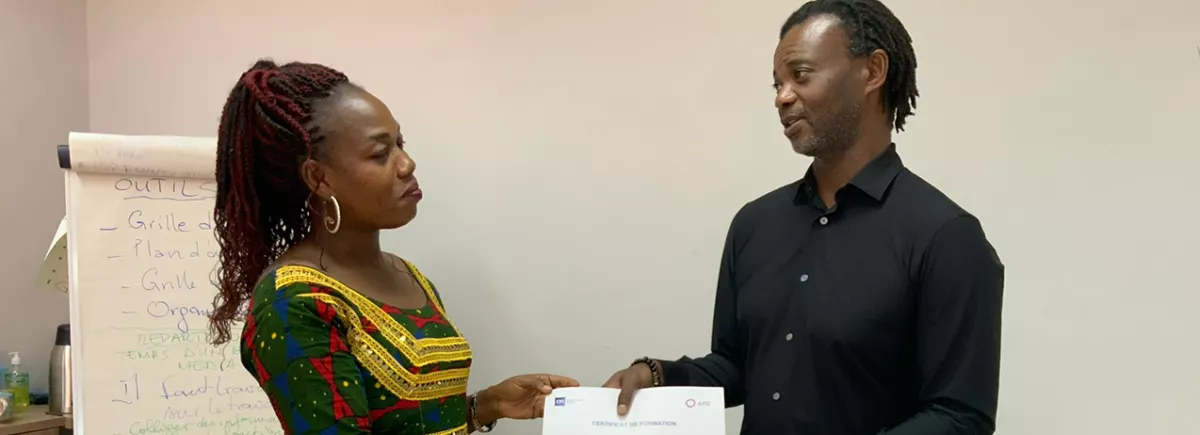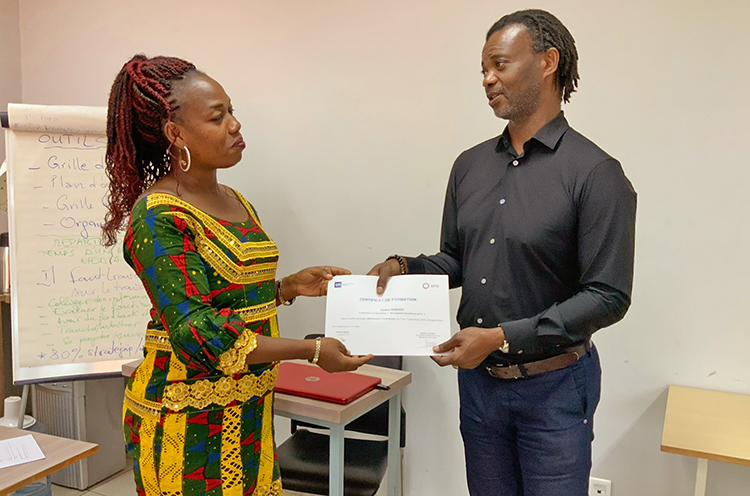
Gender equality in the media: giving everyone their chance
Related project
MediaSahel for WomenIn November and December 2022, nearly 50 managers at radio stations in Burkina Faso and Niger followed gender-sensitive management training as part of the MediaSahel for Women project.
"Unfit, silly, bad mothers, frivolous...". These are just some of the many prejudiced labels used to describe female journalists. The professional reality faced by women in editorial offices consists of being overworked, harassed, intimidated and even discriminated against. "Women are under-represented in the media and face inequality based on their gender", notes Karim Djinko, a gender-sensitive management trainer who gives guidance to managers at media outlets affiliated with the MediaSahel for Women project. Prejudices and stigmas can exist which prevent women from asserting themselves in the workplace. "It's hard to feel confident in yourself when these conditions persist", says Karim. "Some women can feel utterly dismayed and disheartened."
Women journalists also encounter difficulties when it comes to being given the task of reporting on topics that are deemed to have a higher profile, such as politics, economics or conflicts. These difficulties are even more prevalent for women seeking positions of responsibility. "Socio-cultural factors are often the root cause of this trend", explains Karim.
"Making it easier for women to speak"
The situation is no better when it comes to radio content. Gender stereotypes are propagated on the air. Women are rarely interviewed and are relegated to a gender-restricted role. Guests are male more often than not. The trainer believes that media outlets need gender-sensitive management if they are going to more accurately reflect society. His position is that "this can only be achieved if the managers of these radio stations are aware of the problem. The way a certain media outlet operates can be adapted to consider the individual restrictions placed on women, thereby giving women more effective support so that they can find a role with which they feel comfortable. These changes can be very basic, such as shifting the time of editorial meetings or making it easier for women to speak during those meetings."
During Karim's training, he stressed how important it is to recognise talented individuals and to be fair — "giving everyone the opportunity to show what they can do".
His message has clearly been taken on board. A number of radio stations in Burkina Faso and Niger have hired women since the training was concluded in December. These women will, in turn, have the opportunity to undergo training to enhance their skills. Meanwhile, managers will continue to be monitored remotely by Karim so that they continue to implement practical measures that make good on the positive intentions they had when the training ended.
You can also read the Gender equality in the media and media content study, which was published in 2022.



